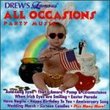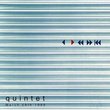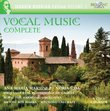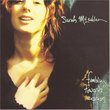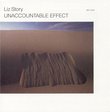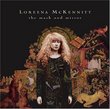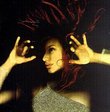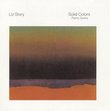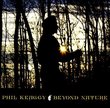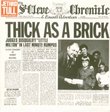| All Artists: George Gershwin, Erich Kunzel, Cincinnati Jazz Orchestra, Cincinnati Pops Orchestra, William Tritt Title: Gershwin: Rhapsody In Blue; Concerto in F Members Wishing: 0 Total Copies: 2 Label: Telarc Release Date: 6/25/2002 Genres: Jazz, Pop, Classical Styles: Easy Listening, Forms & Genres, Concertos, Instruments, Keyboard, Symphonies Number of Discs: 1 SwapaCD Credits: 1 UPC: 089408016622 |
Search - George Gershwin, Erich Kunzel, Cincinnati Jazz Orchestra :: Gershwin: Rhapsody In Blue; Concerto in F
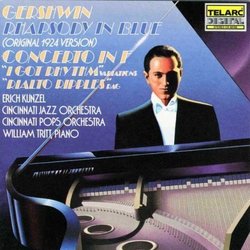 | George Gershwin, Erich Kunzel, Cincinnati Jazz Orchestra Gershwin: Rhapsody In Blue; Concerto in F Genres: Jazz, Pop, Classical
![header=[] body=[This CD is available to be requested as disc only.]](/images/attributes/disc.png?v=a4e11020) ![header=[] body=[This CD is available to be requested with the disc and back insert.]](/images/attributes/disc_back.png?v=a4e11020) ![header=[] body=[This CD is available to be requested with the disc and front insert.]](/images/attributes/disc_front.png?v=a4e11020) ![header=[] body=[This CD is available to be requested with the disc, front and back inserts.]](/images/attributes/disc_front_back.png?v=a4e11020) |
Larger Image |
CD DetailsSimilar CDsSimilarly Requested CDs
|
CD ReviewsSomething a little bit different. Good Stuff | 01/19/2009 (4 out of 5 stars) "This recording has several minutes of music of which most of us are unfamiliar.
As lore would have it, the great jazz conductor Paul Whiteman "invited" George Gershwin to write an extended concert piece to be premiered at a jazz concert Whiteman and his band Palais Royal Orchestra were to give in February, 1924. Gershwin, always eager to please, accepted the invitation, and then somehow managed to forget all about it until barely a month before the concert was to be given brother Ira happened across a newspaper article promoting the upcoming concert, now barely a month away, and mentioning a much anticipated new work by Gershwin to be virtually the highlight of the evening. He feverishly set about composing on January 7, 1924, barely finishing in time for the concert premiere, which, of course, was a resounding success. Happy endings all around. Well, while a certain amount of the story may be apocryphal, most of it is actually true, or at least as close to the truth as we are likely to get all these years later. Gershwin's story (as told in his first biography, dated 1931) is that he never firmly committed to Whiteman for the concert, and that Whiteman more-or-less forced his good friend into the job with the above mentioned newspaper article. The January 7 start date of "American Rhapsody", as it was named until brother Ira suggested the name by which it is now universally known, is born out by the autograph score. It is also known that he completed it, in four hand-two piano form, a few weeks later and turned it over to Whiteman arranger Ferde Grove, who completed the orchestrations four days before the concert. The concert was given on the afternoon of February 4. Gershwin' piece did receive prominence. In fact it was the next-to-last of some two dozen pieces presented during the over-long concert in an increasingly stuffy Aeolian Hall, to an audience that had become somewhat restive. However, Grofe's arrangement was done without most of the piano solos. Gershwin wasn't sure exactly what he would play, so large sections of Grofe's score were left necessarily blank with instructions to conductor Whiteman such as "Watch for nod", meaning that Gershwin would cue him from the piano when it was time for the orchestra to resume playing. The audience perked up and the Rhapsody was a huge popular success, if not a totally critical one. The piano solos were not committed to paper until after the concert, and purely from memory. Gershwin's and, it must be assumed, Grofe's and Whiteman's as well. Grofe added them to the orchestration after the fact, and then revised and polished his orchestration in 1927 or 1928, always for jazz band (with a small string section, as had been the case at the premiere). Most likely that is the version heard here. Finally, in 1944 Grofe returned to the work one last time, writing the version for symphony orchestra and piano with which we are all so familiar today. It seems to me the recording in question here attempts to fill in the musical blanks from that long-ago premiere. Hence, nearly all the additional material goes to the piano, although there is a smallish amount of rewriting for the orchestra, or jazz band, if you prefer, as well. Most of the additional piano music, if accurate, tells of a composer who was short on time and, it must be said, on experience in this bold new medium of concert jazz, as well. It seems he was trying to make sure his performance at the piano had prominence, almost padding it, if you will, that one and all know this composition was by George Gershwin and none other. For the most part, the additions, while not without interest, really add very little. Mr. Gershwin needn't have worried. Rhapsody in Blue is as inextricably a part of the Gershwin legacy as Porgy and Bess, I Got Rhythm, and perhaps a hundred other titles. The performances here are strong. The recorded sound is good. I can't think of a single reason not to give this a listen. It may not end up being your only "Rhapsody" recording, but I'll bet you'll come back to it again and again. " |

 Track Listings (6) - Disc #1
Track Listings (6) - Disc #1